Waldorf alumnus and business entrepreneur David Wertheim Aymes led the development of the Bosun Group from very small beginnings in 1995 to being a major player in the precast concrete industry in South Africa today. Andrea Valdinoci met with him to explore best practice examples in the arena of threefolding entrepreneurship and associative thinking—an idea that is 100 years old but, for many, is still new.
Andrea Valdinoci: Welcome, David. Let’s begin with: what does ”threefolding” mean to you?
David Wertheim Aymes I might answer this differently on different days, but, for me, threefolding was just in me—growing up in a so-called anthroposophical family, it was not something I had to figure out; it was just there. I had to, however, spend a lot of time uncovering it. There was always a disconnect: a difference between what stirred people inwardly—my parents and others—and what actually happened. This was disturbing and, at the same time, challenging for me. Inwardly, I have an overriding imperative to not accept what anybody says—I have to find the truth for myself. I had a yearning to connect anthroposophy, the liberty sphere in particular, to everything in life. I wanted to offer a real solution but live absolutely in the world, the way it is. It’s been a long and gradual process of discovery.
My destiny eventually led me to run my own business. My personal development had its founding steps in attempting to apply the fourfold principles of mineral, plant, animal, and human to the business. We tried to see the business as a fourfold entity and how that related to us as human beings. That process became a developmental path in itself. My soul was forced to work with facts and the reality of the fourfold, and in having to connect them, it was exercised and strengthened. Through this process, my soul gained real stability—more insights could flow to me consciously. The whole process had an unexpected benefit for my personal growth—I recommend it!
The crux of the problem in the world today, as I see it, is that the liberty sphere cannot feel itself as a true spiritual reality. Human beings cannot sufficiently experience themselves as spiritual beings. They cannot cross the abyss, out of materialism, to recognize themselves as a necessary mediator between the spiritual and the material—they don’t experience that as a reality. That is the bridge we have to cross for the world to start to metamorphose in a different way. It will only change when individual human beings can truly feel themselves as spiritual beings.

So, for you, is humankind a mediator?
Yes, we are facilitators of the good and the true. We are not generators; we simply don’t have the capacity to be generators. Our task is firstly, to recognize ourselves as what I call an “allower of the good and the true“—to let that come through by being an organ of the angelic world.
How do you connect your daily business at Bosun in South Africa with what you’ve said?
We are in the precast concrete industry: we take raw materials and cement, and we form them into products which get very hard and very unforgiving once they’ve cured. It was a shock to my soul to find myself in such a business when I was younger because my father was involved in the Weleda and Wala in South Africa. I grew up in the healthcare environment, which was quite different from the concrete industry, and the people involved in healthcare were quite different from the people involved in concrete. It was a very dry and barren place.
When I originally bought the business, it had 22 people and was making 4000m² of paving a month. Now we have 400 odd people and produce 250 to 300,000m² a month. I didn’t have money, so I had to borrow it. We built the business entirely on loan money and profits. Now we are the leading paving manufacturer in South Africa, not necessarily in size but definitely in product range and quality.
I worked out fairly early on that our competitors could deliver a pack of ten square meters of paving to a customer that looked quite beautiful. At that point, we couldn’t do this: our packs looked very “third-world.” We had to get to the point where we could deliver beautiful packs, too. Now we make world-class products, and our European suppliers, who visit us from time to time, affirm what I’m saying. We have customers all over the world, and we take on most of the prestigious projects. Yes, we do everyday road projects too, but we also have products that are very difficult to make and need a lot of liberty sphere intervention and acknowledgement in the process.
When I started in 1995—the year after the switch from “apartheid rule“ to ”inclusive democratic rule“—the environment in South Africa was troubled and corrupt. Although we have not had to endure war, we have had to deal with 12-hour power cuts each day, bad roads, water outages, crime, and similar problems. In my view, the key for our success is first identifying the significance of the humanity in us, then putting this within the threefold structure. The conscious connection of the liberty sphere to our daily tasks has given us incredible stability. If you look at the history of our earnings and turnover, it shows very consistent growth despite the variable circumstances that we have faced. Along the way, we built new factories and had growth spurts, but there is incredible consistency in our numbers. Conscious mental stability among our people as a team manifests in the numbers described. People’s ability to hold something together inwardly, to keep weaving it together, is exactly what we all need in the diversity of changing circumstances
Thank you for showing us this path. In our last conversation, you mentioned that you had changed the leadership roles, tools, and accountability structures. What have you and your team done?
We’ve reached a very interesting turning point in the business. I invested an enormous amount of time trying to find a way to link what lived in me to others, so that they could step into these concepts. How could I help others work out what they really needed to do, to weave all this together? In conventional business structures, you have sales, marketing, production, operations, accounting, and so on. When I discovered the threefold structure, I moved these traditional focus areas into it. We now have spheres of liberty, economy (split into relevance and efficiency) and equality.
In order to develop an inner relationship to this structure, I use a balance beam. Standing on it, we can experience how important it is to be far away enough from the others to have the leverage that enables each of us to react and give stability to the whole, in this case, the balance beam. Active, conscious participation is the common goal. Leverage on the balance beam is related to conceptual clarity in each of the three spheres in business. The more clearly you identify them and understand that they’re independent realities, the more influence each can have in serving the whole. On the balance beam, you have to interact with the other side, physically, all the time. With the practice of threefolding, you have to continuously see where the spheres are weak and where they are strong. When they get weaker and drift towards the centre, you have to respond to that. And both sides have to do it—one can’t do it alone. When I start to get an inner feeling that I need to be at a distance and yet be able to respond from the certainty of knowing who I am as a sphere, I can start to metamorphose the traditional structure into a threefold management structure.
Now we are in a situation where we have interactive decision-making meetings: we have a head of liberty, a head of equality, and a head of economy, and we make it absolutely clear from our different perspectives what is required for a workable solution for all of us—we make that decision together. In this way, the whole thing stays in balance, and we don’t move people closer to the centre and create confusion, which is where most unitary states are right now.
Please make a link to the traditional business structure.
We are an economic activity, so on the economy side of the business, the basis of which is providing for the material needs of others, our product has to be relevant. Plus, we need to produce our relevant product efficiently. We split the economy aspect into two, with relevance to the material needs of others at the forefront. When our salespeople go into the marketplace, we go on the assumption that we are serving the market’s material needs: if they have none, we leave without pressuring them emotionally, thereby destroying the liberty sphere. Sales, marketing, and the operational side of the business form one leg of a triangle.
The place of freedom—liberty—is another leg. That’s where we do all of our recruiting, onboarding, training, and personal development planning. We’re trying to work out how to build human capacity to hold more new concepts, so that each person starts to experience themselves as the change—the improvement or the destruction—of what they’re doing.
And the third leg is the equality sphere. We call it financial reporting, internal controls, etc.—the contractual stuff with employees, suppliers, customers, and the government. Here, we try to make sure that those agreements are conscious or rotated into the business in consciousness, so that we are very aware of what and where our contracts are, and whether they’re being applied and upheld or not.
Why did you change the “rights” sphere to the “equality” sphere?
We are equal before the law, before all these laws, and we have to ensure that, so we have to apply all these things. Where the normal businesses just see finances, we add this: let’s be aware of all these rules that you’re telling everybody to comply with, but let’s make sure that they are applied equally everywhere. To this end, we have an equality committee which meets once a month. In essence, we ask them: what is not being applied equally and is not fair? Then we get feedback, and we look at it and try to untangle it so that everything is applied equally.
Could you say a little about where you are still searching or struggling?
It always starts with the liberty sphere. I’d like to pick up on an earlier comment—that I was on my own when thinking and playing with all these things. The situation in our business has now tipped the balance in favour of what we’re doing. We have younger people who want to carry on the process of consciously connecting the human being to their everyday life. It is enabling them to see that it is their spiritual nature, not their bodies, that has the impact, because their bodies aren’t strong enough to make the change, but their thoughts can. We have some fresh young shoots who are really supporting this, and I feel excited that I’m not trying to blow into the wind anymore, which I’ve done for so many years.
It’s been a really long process to find a way to bring everyday people deeply into this process where there’s real commitment. The challenges remain in the liberty sphere. We haven’t been sufficiently structured in our training, our inductions, and the imaginations that we share with everybody—we’re not doing it widely or often enough. We say business is not nature; we say your business looks like what you are inside. The business metamorphoses depending on what lives in the people who work for it. It’s a liberty sphere problem that you get cheaters and lazy people, and you have to be very aware of that process. You’re not going to get rid of it, so you have to decide how much you will allow. So the problem is that our liberty sphere is still too weak, but because I’m becoming more and more the head of liberty rather than the CEO, we’re going to strengthen that.
And then, of course, on the finance side, it’s very difficult to get a modern, educated finance person who is sensitive to their inner nature. So there’s an ongoing problem of allowing an accountant to be an accountant, but encouraging them to see the totality of what they actually need to be better able to manage.
What have you learned about associative work? What is your experience with it?
I’m going to say it the way I understand it: in the legal structure of the South African state, associative thinking is blocked. Associative thinking, in our industry, would mean that we do not put large precast concrete manufacturing plants right next to each other in the same area and adopt a competitive approach. Rather, we would associatively plan plant locations where they are needed, so that there are not too many or too few for the needs of the people. We would also have common training and share staff skills across these places. We’d agree on pricing so that you don’t make too much profit, but you make enough to do it again next year. Inside the modern legal structure, certainly here, this is not possible—in fact, it’s illegal in South Africa to even talk the way I’m talking. So, we’re aware of the need for associative thinking, and we can think it, but we have to stay within the law when it comes to sharing it with the industry. We have to be very careful. But we’re aware of the new guy who’s putting a big manufacturing plant 300 meters away from us. The only thing we can do is not allow ourselves to go into competition or to think competitively. Instead, we have to go inside and be human in everything we do, create a beautiful work of art so that the market sees it, and keep this as our motivation, rather than competition.
You are quite open with your view of threefolding in your company, and you also express it on your company website so that customers and competitors can see it. Do you see threefolding as a way to change the whole political system in South Africa?
I wish it would and could, but I’ve found that not even the anthroposophists are interested in what I’m doing here—very few are. You have to do what’s right, what you feel is right, and you just carry on and see where the interest comes from. That is why I am saying that the problem in society today is that the liberty sphere has no self-identity, no self-awareness, and it is far too little and far too impractical when it does.
I’ve just read my first book by Joseph Beuys, the German artist. He has this expression: “A work of art is something that’s complete.” He says that real art is every human being recognising the artist in themselves, wherever they are, and that only when every human being is allowed to be an artist at every point of interaction with the world and with others, will things change. I think we’re still pretty much at this point—trying to be artists and seeing what happens. Bosun is trying to set an example. Fortunately, we have young people who want to extend this. Right now, it’s like a tiny birthday candle that nobody can see, but maybe in another generation, if we can show these successes, that candle will get bigger, and maybe its light and its warmth will draw others to investigate. That’s our hope.
Thank you very much, David.
More The Missing Linc, The Balance Beam
All images by David Wertheim Aymes
Illustration Graphic team of the Weekly

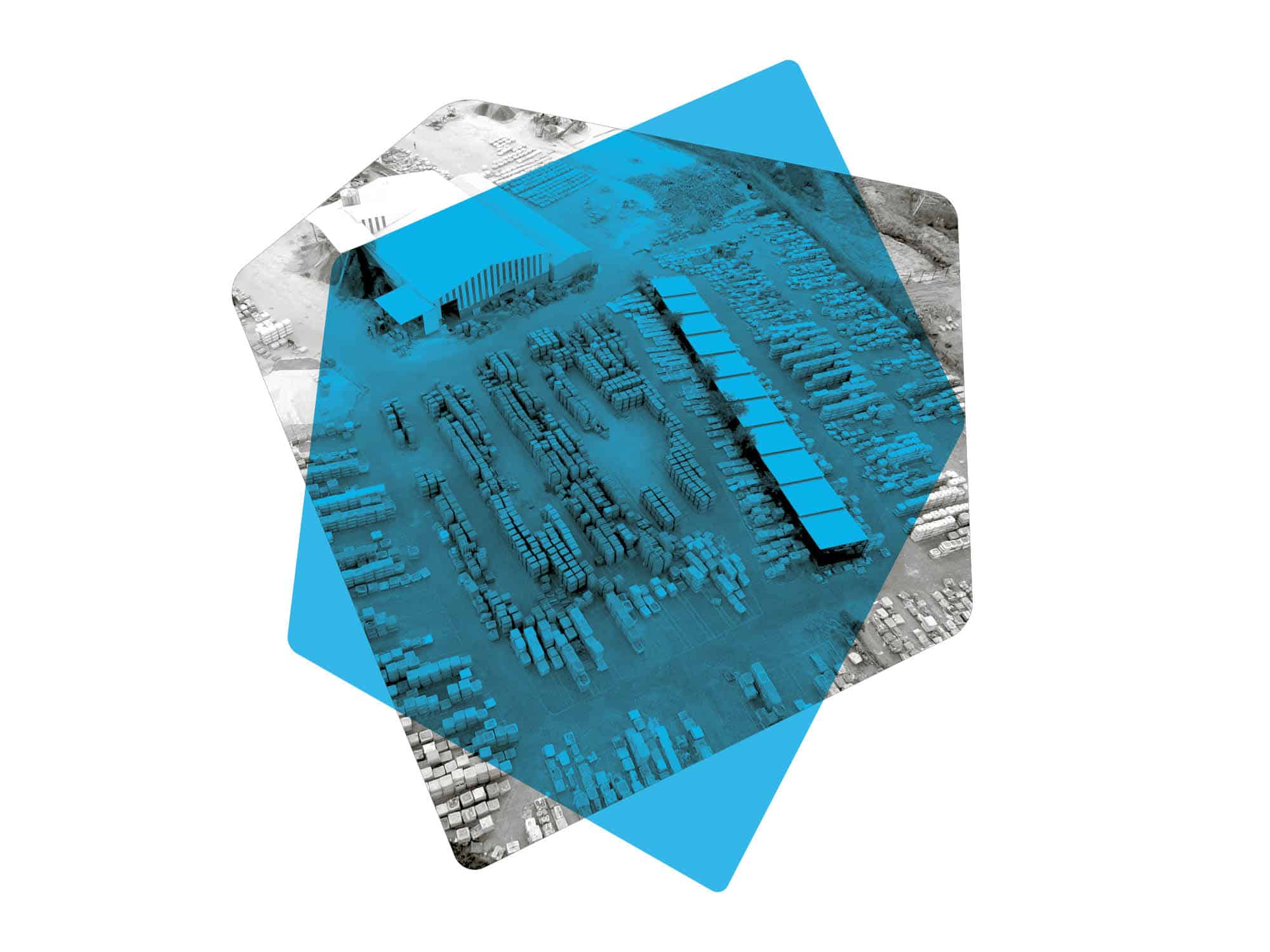

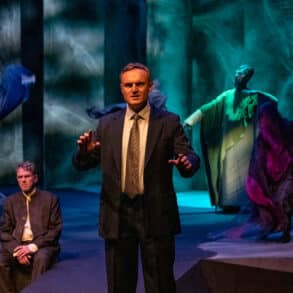
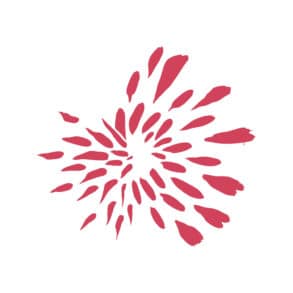
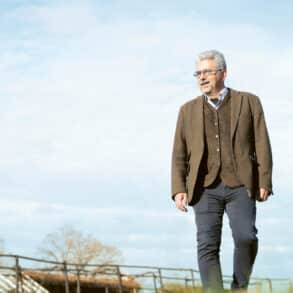

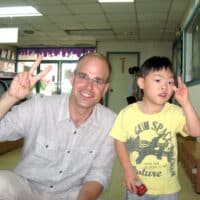


I really appreciate the articles which you provide.
Thank you.
rom Marian Stronach
I really appreciate the articles which you provide.
Thank you.
from Marian Stronach